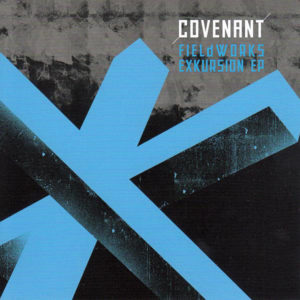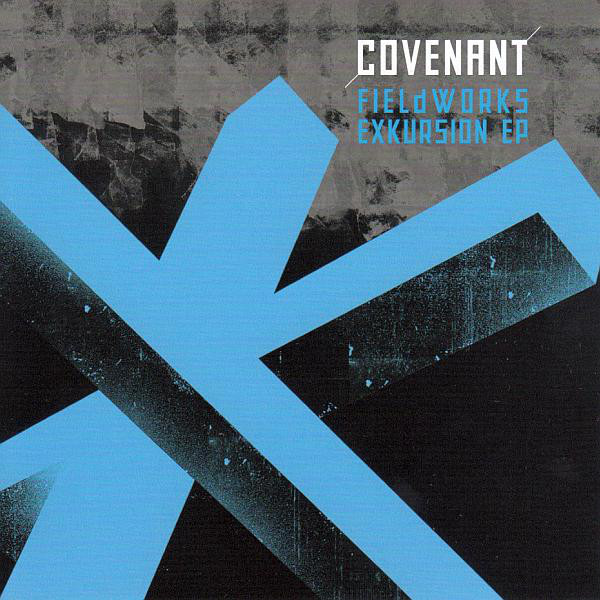
Covenant
Fieldworks Exkursion
Dependent Records
For years we’ve talked about how for all their changes and progressions, Covenant have remained immediately recognizable, and that the long-running Swedish act always communicate a certain je ne sais quois from the moment a new track of theirs begins. More than any other release in their discography, Fieldworks Exkursion challenges that assertion. While there’s one characteristically stormy banger in “All That Is Solid Melts Into Air” (more on that later), the five tracks on this initially tour-exclusive EP feature the most outre experimentation hitherto accomplished in Covenant’s history, both musically and conceptually.
At least some of Fieldworks Exkursion has its roots in field recordings taken by the band while on tour, and each track is composed by a different member of the band, which perhaps explains the sheer range of sound investigated in less than twenty-five minutes, along with how far removed the EP is from the band’s extant catalog. The dusty ambiance and mournful organ of “Pantheon” (inspired by Joakim Montelius’ travels in Rome) couldn’t be further from the banging clatter of “All That Is Solid Melts Into Air”, with its gulping beat sounding as though it’s straining to keep up with the muted klaxons and keys which make up the bulk of the track. It’s a piece which certainly has one foot in Covenant’s roots, but like the best moments on The Blinding Dark finds the band working with more contemporary sound design. Speaking of contemporizing, Marie Lando of nu-goth act grabyourface sounds right at home on “False Gods”, a tune that has the passionate irreverence of classic joints like “Final Man” but whose anti-celebrity message has deeper resonance on a cross-generational collaboration.
Fieldworks Exkursion is rich with cultural reference, and draws upon a broad scope of historical and artistic influence. “All That Is Solid Melts Into Air” of course nods to Marx’s metaphor for the chaos of class relations in the wake of industrial capital, and welds that phrase to a call for class uprising in Shelley’s “The Mask Of Anarchy”. “Popul Vuh” may have a double meaning as homage to the krautrock band of the same name, but it’s also a direct reading of the Mayan origin myth, which perhaps makes for a fitting segue into closer “Das Nibelungenlied (I. Abenteuer)”. Far more austere than anything else on the EP, Simonsson’s recitation of titular middle age German epic well communicates the metre and rhythm of the original text even to English speakers, though the foreboding tone of the simple echoing piano which traces through it is more ambiguous. A reference to the tragedy that is to befall Siegfried, or perhaps to all the multifarious ways in which that myth would go on to shape German history?
What’s perhaps ultimately most satisfying about Fieldworks Exkursion is that it doesn’t feel like experimentation for its own sake. A particular theme or mood seems to have been conceived of, and then sound design and structures established to suit, regardless of how they do or do not intersect with the band’s extant work. When we wrote about The Blinding Dark just over two years ago, we made the somewhat brazen claim that Covenant’s “best work might still lie ahead”. Fieldworks Exkursion buoys that hypothesis. Covenant were not the first to take inspiration from Marx’s image of social transmutation: at the close of his own All That Is Solid Melts Into Air, the great critic Marshall Berman held that “The process of modernization, even as it exploits and torments us, brings our energies and imaginations to life, drives us to grasp and confront the world that modernization makes, and to strive to make it our own.” Covenant are continuing that struggle, with their own history and their own future.





